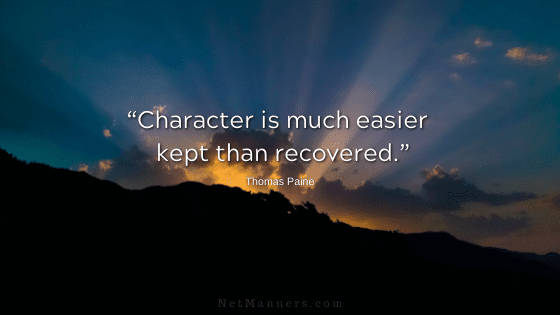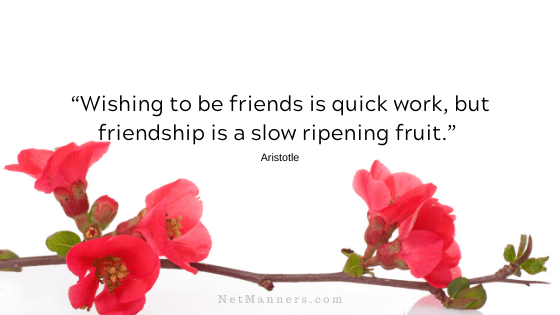Customers Should Email with Courtesy and Clarity

Good customers communicate with courtesy and clarity in their email communications. When you send questions by email or through a website’s contact form, that is an opportunity to show what a good customer you are or have the potential to become.
Simply because you are the customer doesn’t negate the need for you to make an effort to give all the information and details the other side will need to aid you with your inquiry. Nor does being the customer mean you do not have to capitalize sentences, spell check or ignore proper grammar.
Even if you are upset, keeping your cool and sticking to the facts helps the process along. Refrain from using unnecessary adjectives, punctuation, and of course, profanities.
I have a couple of quick examples that I have personally experienced to share with you. These two examples are from today alone and reflect a lack of courtesy, detail, and clarity.
Just Tell Me How…
One person emailed my consulting website asking:
No Hello or Hi, or “Thank you for your help.” They didn’t even sign their name. In addition, they used my general inquiry form instead of the “Request Help” form. (Yes, there is a link on the general form to please use the help form if they need assistance.)
The latter asks all the questions I need to know to be of service. But, unfortunately, that requires more time and effort, so we just went with the easier form.
Oddly, I do not even offer eBay setup/customization services. But for the sake of this example, let’s say I did.
Was I to spend time explaining all the details that question entails simply because someone took the slightest effort to email me that question? Also, what type of customer do you think this person would be like to work with?
I did reply and kindly sent them to the eBay Seller Help pages. No response after that…
Customers Are Not Always Right
The following example is from a customer who emailed through my Business Email Etiquette website. They claimed to have purchased my book. The only book I sell on that website is my eBook.
Wow — being it is an eBook, the system would have immediately sent an email with their download link. I checked my order system — had a bunch of orders for that eBook on 7/17—no order under this person’s name or email address.
I checked my payment processor — no payments from anyone by the name provided. This took 15 minutes of my time to find I had no order under this person’s name or email address.
So, if this request is legit (and the lack of email etiquette and multiple question marks puts that into question), a more courteous and detailed inquiry probably would have allowed me to respond with all the details they were looking for in one reply.
Instead, I had to look for an order under this sender’s name or email that doesn’t exist. Did the order get placed under another name? Was a different email address used? Are they even at the right website?
These details would have saved me from emailing back asking for more information. Turns out this person didn’t order my eBook through my website (they responded that I should know this).
They ordered one of my paperbacks from Amazon. I explained they needed to contact Amazon as I have no communication channel, visibility or control over Amazon’s operational processes.
The response? “You suck!” This person needs much more help than any of my email etiquette books can offer.
Customers Have Responsibilities Too
The key here is that as a customer, it behooves you to give all the details you think the other side will need to respond to your inquiry. In addition, doing so in a kind and courteous manner will most likely ensure you receive a prompt and courteous response.
Because one is the “customer,” certainly doesn’t give permission to email without any details, courtesy, or proper email etiquette. By not taking the minuscule amount of time required to add greetings, details, and closings, you show that you most likely will be a demanding customer and not a very profitable one to boot.
Perceptions Happen
Don’t think for a minute that the business owners on the other side of the screen are not making that determination. I know I do.
My consulting website is purposely set up as sort of a test. Succeeding online requires a willingness to make the proper efforts. Do you take the time to read the provided information and learn new things? Or not, and then ask questions whose answers are already in my FAQ?
Do you complete the correct inquiry form? Or the one where you don’t have to provide the needed details and information? Contrary to popular belief, there are no shortcuts to online success.
However, when you email with courtesy, details, and clarity, you can bet the other side will value your business and go out of their way (before those who email like the examples above) to promptly answer your requests with the same.
Use your email inquiries to show you are or will be a great customer!






